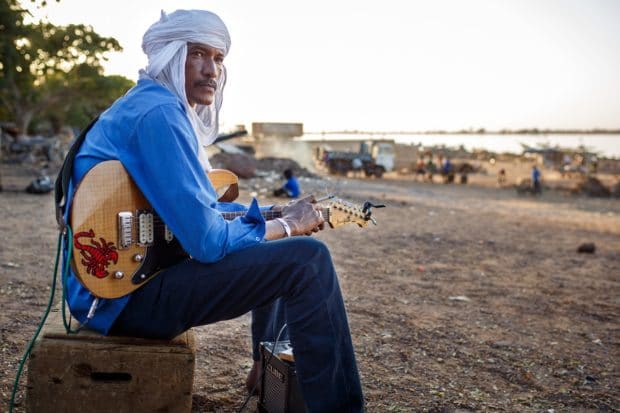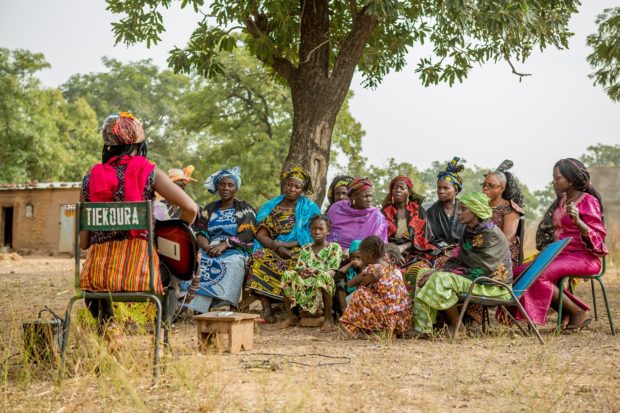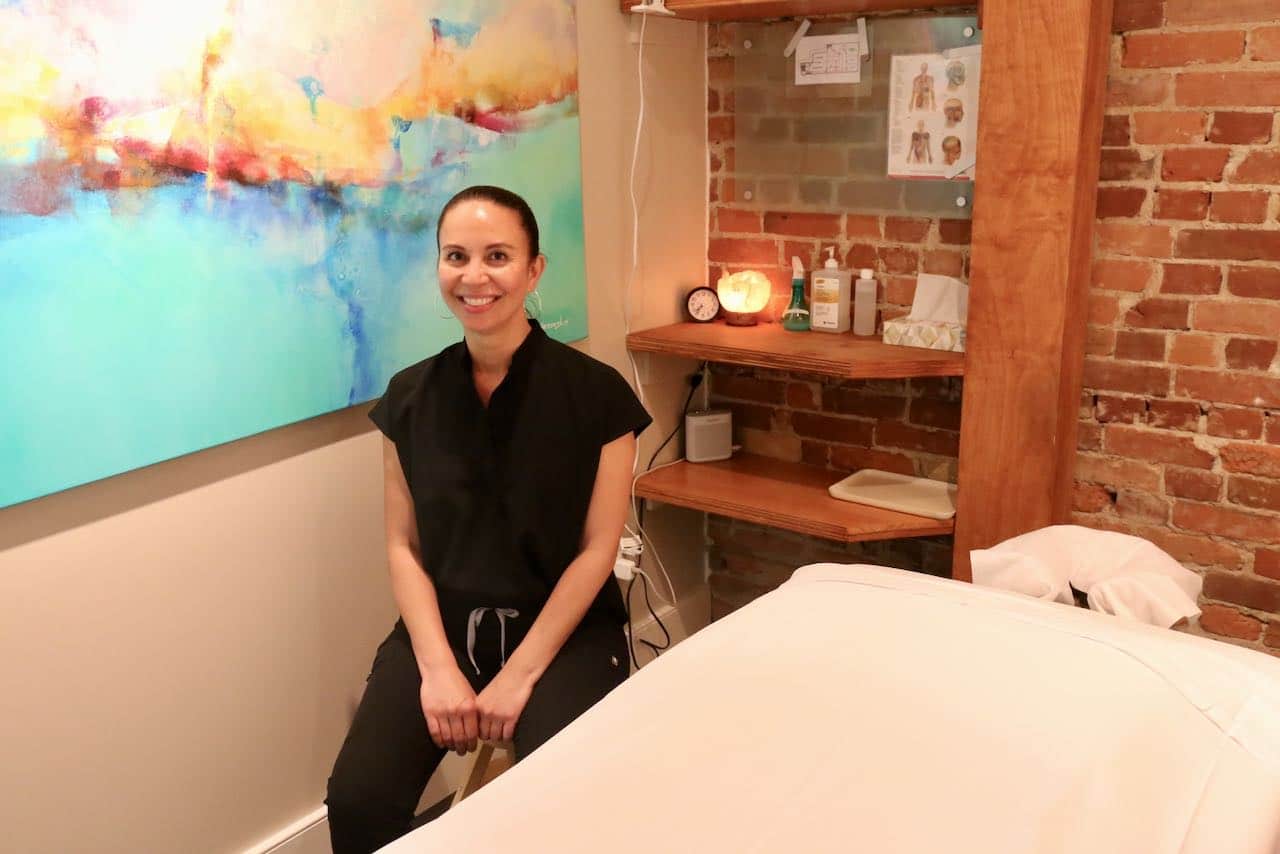A land imprisoned by Islamic Extremism lays quiet as musicians flee from their homeland fearing torture and imprisonment in seasoned documentarian Lutz Gregor’s Mali Blues. Lutz follows Oscar nominated musician Fatoumata Diawara as she returns home to perform her first concert in Mali since Sharia law was enforced in the West African country by the radical Islamists prohibiting the creation and performance of music.
Capturing the journey of musicians as they seek to bring blues, jazz, hip-hop and redemption to the heart of Africa, Malie Blues is a powerful documentary about the heart breaking effects of an Islamic ban on music in the birthplace of blues.

Mali Blues comes to you from powerhouse production company gebrueder beetz filmproduktion. Specializing in documentary film, they are responsible for Sundance award-winning The Land of the Enlightened along with the co-production of the Oscar nominated documentary Open Heart.
As West Africa struggles to find peace, Fatoumata meets musicians banding together to seek peace and fight the eradication of Mali’s cultural identity – its music. The film features four groundbreaking musical stars: Fatoumata Diawara, Bassekou Kouyaté, Ahmed Ag Kaedi and Master Soumy that rebel against the extremists and seek to reconcile their beloved country by urging radicals to ‘explain your Islam.’
“Music is a universal language,” says documentary filmmaker, Lutz Gregor. “Music unites and gives a voice to those even in the most impossible of circumstances. That’s what we seek to explore in Mali Blues.”

Mali Blues is an inspiring tale filled with exotic West African landscapes, gorgeous folk fashion, dramatic dance and a tear-jerking narrative which touches on the implications of Islamic extremism on cultural identity, fighting war and violence with art and the power that lyrics have on educating a close knit community.
Mali Blues’ most memorable moments take place in the second half of the film. After leaving her tiny rural village to pursue her passion for music Fatou returns years later to an emotional celebration where family and friends sing, “May God make your marriage soon possible. Fatou, we pray for you. For a proper marriage you need 10 kola nuts. Some called you an easy girl or whore, some called you phoney some a witchy women, but no your fate was God’s work.”
Fatou trembles as her community which once judged her for not following the traditional role of a woman (get married please), celebrates her return with song and dance. She then takes the opportunity to perform an intimate concert to the women of the community. With an electric guitar in hand she spreads a powerful feminist message to both young girls and the oldest elders of her family. In Mali female circumcision is still the norm, she croons, “I only sing this song to women not to men. Most men only do it because you decided it is necessary.” After her song ends the women both young and old openly discuss the impact of the barbaric procedure and question whether it is a muslim religious practice or one that has simple become engrained in their culture.
The film’s finale features an electrifying concert where Fatou dazzles a massive crowd, encouraging them to find pride in their past and smile brightly towards the future, “Let’s flip it around. Only those dressed in African clothes get into Paradise. What do you think new generation? We have our dignity too! Let’s force the world to wear shells in their hair! Whoever wants to speak to us has to learn our language. It’s great to be an African! I brag about my homeland everywhere I go!”


